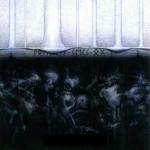 KruppeTheGreat, on 25 April 2017 - 11:13 PM, said:
KruppeTheGreat, on 25 April 2017 - 11:13 PM, said:
- That was hardly a siege. More like a battle. The Bonehunters get to the city, BAM, make a breach on day 1 and storm it. Without reconnaissance. Without negotiation. Without sending the Claw in, when I seem to remember from Pale that this was standard operating procedure for Malazan sieges. Without knowledge that Leoman had ordered no attempt to be made to defend the perimeter wall;
First of all, when you speak of the 'siege' of Y'Ghatan, bear in mind that this city has been besieged many times before. I cannot remember the exact book content or wording, so I just wanted to clarify whether you weren't mixing up events here. Whenever characters in the book refer to the 'siege' of Y'Ghatan, they most often speak of the siege which happened a decade prior to the events in the MBotF and which was led by Dassem Ultor. I cannot recall whether anyone in Tavore's army actually referred to the assault in the Bonehunters as a 'siege'. I seem to recall that they were in hot pursuit of Leoman and the leftovers from the Whirlwind rebellion and that Tavore's army itself was threatened by the plague. So they needed to get in and out fast, there was no time for a full-on siege.
Secondly, you cnanot compare Pale with Y'Ghatan. At Pale, they had the Claw who neutralised the Pale mages, making a drawn out siege a viable option. In Y'Ghatan, Tavore did not have the luxury to sit outside the city and 'wait it out'. The plague was creeping up and her army was required in different places as well. So the whole point was to get in fast, hit decisively, and move on.
Quote
- Horrendous organization. Effectively the first event in the siege is a "sapper" setting off way too many munitions at once, apparently for the fun of it. While reading through the early moments in the battle, I got the impression that, just prior to deploying for the assault, a significant number of Malazans had just picked up some munitions from the storage and made themselves "sappers". One would think that a war machine as proficient as that of the Empire would have policies against common soldiery picking up devastating weapons without knowledge or training on how to use them;
The whole point of the setting is that the organisation is horrendous, so SE actually succeeds in what you criticise him for. The setting that is supposed to get conveyed here to us as readers is that the 'Empire' has recently had devastating blows to their military capacity. Between Genebackis and Seven Cities (Coral, Capustan, Raraku, Chain of Dogs, etc etc), the various hosts have been pummeled to bits. There are hardly any veteran soldiers left, the armies consist mainly of young local recruits with hardly any actual affinity with or connection to the Malazan homeland, and formal command structures are shaky or absent. So what results is sergeants and captains who have little control over their soldiers, untrained 'sappers' with very little actual experience with munitions getting their hands on stuff they have no clue how to use properly, and little groups of soldiers on the ground with incompetent commanders just doing whatever they think is productive. The 'proficient war machine' that you describe does not actually exist anymore, that is the whole point of this scene. Most of the experienced soldiers were with Coltaine or Dujek. And they were wiped out, decimated, or mentally broken. Tavore comes over from Qoun Tali with just a bunch of green Malazan recruits, complemented mostly with locals. And that is what you are seeing at Y'Ghatan. A group of mainly untested recruits. They were not tested in Raraku, as internal fighting in the rebellion and Raraku itself intervened; they again do not get the expected 'military' hardening at Y'Ghatan. This is the theme that Erikson is weaving over several books, that this is a group of untested soldiers in foreign hostile lands and at every turn their campaign is faltering or diverted. It is a huge thematic setup for the complete story arc.
Quote
- Appalling tactics, way beyond what is justifiable by the Adjunct being an inexperienced commander. Once the gargantuan breach is open, the 14th just sort of marching in, seeming to not even consider the possibility of resistance. While entering a city they know crammed with fanatical enemies. Even Fid, a veteran of the glory days of the Empire, does not seem to particularly object to this suicidal mode of attack.
Again, as mentioned above, the whole point is that they need to get in quick and decisively. There is a breach, so they use the opportunity. What else do you do with a breach? Only the actual assault is rather haphazard as the command structure is weak.
Quote
- The characters: I am actually relieved Erikson killed off everyone (or almost everyone? I lost track) he'd introduced earlier in the book in the siege. I felt like the entire third half of book was Erikson trying to pull a George RR Martin, give the reader a bunch of faces to get used to, to then tug on their heartstrings by viciously murdering them in the assault. Well, didn't work with me. As dozens upon dozens of soldiers, corporals, sergeants and captains got introduced, I found myself growing numb. Didn't really get anything out of this hailstorm of new faces, at least not enough to make me feel anything upon their prompt demise.
The comparison with George RR Martin I leave to you, I'm personally not invested in that sort of cross-referencing. SE has been killing off big characters by the bucket loads from the start of this series, so I'm not sure how it can suddenly be a surprise or a 'pulling a GRRM', especially seeing that both series were written pretty much consecutively and in some cases SE was even earlier than GRRM. If you are looking for any parallels or comparisons, you are better off looking to series like Dune or Glen Cook's 'Black Company'. Those would be far more accurate references as they are written much earlier than MBotF or SoIaF, and SE has never made it a secret that he is a great admirer of those series. Really what SE is trying to achieve with the many character viewpoints and deaths is an alternative look to how we usually see these battles portrayed, i.e. from the perspective of the guy on the ground in full chaos instead of with a bird's eye overview on neat tactical manoeuvres. War is nasty and sad, not elegant. And dirty city street scraps with booby traps doubly so. There is chaos, death, confusion, and tension. It is gritty. And often it is senseless.
Of course there is a reasonable argument to be made whether you think that SE actually achieves that goal and that portrayal or whether you think he missed the mark, but that ultimately is a matter of opinion and an altogether different discussion. I too think that some bits worked better than others and there was a bit of an overload at times.
Quote
- The Malazan Empire: a multi-continent, seemingly all-controlling organization, and yet pitifully unable to put together a force able to effectively besiege a single fortress. A rebel fortress. Not a rival nation, a single citadel held by a handful of ragged rebels. One for which the loss of three thousand men is a catastrophe. One wonders how the Empire even became such under these conditions. This question is shortly answered if you tell me this one battle is meant to show how the Empire has grown sloppy, decadent, and its military incompetent and lazy, but then every last bit of sympathy a reader might have had for anything within the Empire, which, to be honest, was quite high (at least for me) after the Chain of Dogs, vanishes.
Again, see comments above. The whole point is that the Empire *has* grown sloppy and incompetent because of recent events and questionable leadership. It is one of the core setups of the rest of the series, so you are meant to get that impression. It is not a flaw, it is actual intent. I am not sure why you think that you have to have sympathy with the Empire. The only sympathy that SE wants you to have is with individuals. And it doesn't matter whether they happen to be on the side of the Empire, in the rebellion, a tenescowri, or lone individuals. This is not a series about Empire, this is a series about individuals and human interactions. The 'Empire' is a tool, sometimes used for good, sometimes for evil, depending who leads it and who influences its activities.
Quote
- A similar point I could raise about the Letherii Empire, about how it basically controls a continent but a bunch of tribal peoples can crush its entire military and storm its capitol in a week or so. At least the Edur had Kaminsod on their side. Leoman had a bunch of nutjobs and a few jars of oil.
Indeed. You got the point. How could a grand civilization like the Roman Empire be overrun by savages? It is overreaching, the middle cannot hold, corruption seeps in, overview gets lost, people get spread too thin, etc etc.
Quote
- The entire conflagration debacle is basically an overgrown, mutated, magicked version of the Battle of Blackwater Bay in the Song of Ice and Fire, and the usage of wildfire. However I will not take this point any further as I am not even sure this episode was written after said Battle of Blackwater Bay.
Again, can't really do much with the GRRM reference. I'm not even sure if SE has ever actually read any GRRM. Fantasy and historical literature is loaded with battles involving big blazes. I'm sure GRRM based his Blackwater Bay story on other sources as well, it clearly relates to Greek fire used by the Romans. There are accounts of Ghengis Khan and the Mongols using fire to subdue cities.
To specifically point to a water battle where they use wildfire on ships as a comparison with a desert city fight where they use oil fire seems a bit contrived and unfair to me. The whole point of the setting, which in my view makes it completely incomparable to the GRRM story, is that we have a group of defenders here which torch *their own* encampment to function as a big trap. That is quite uncommon, because they themselves are actually inside as well. That's why most defenders normally wouldn't do such a thing. It's equivalent to a mass suicide out of spite (or ignorance of Leomans' plans...).
Quote
I think that's all my grudges for now. What I'd like to start here is a conversation about what this episode actually stands for, whether you think it (and the first third of this arc in this book) was effective or not, and whatever thoughts you may have on this whole ordeal.
Again, please no spoilers to the future of the bonehunters. Got enough of those.
I think it was very effective, but you can only judge that by the end of the series when you can put this event in a thematic context I'm afraid. I'd love to hear your comments at that time.
This post has been edited by Gorefest: 26 April 2017 - 03:42 PM
Yesterday, upon the stair, I saw a man who wasn't there. He wasn't there again today. Oh, how I wish he'd go away.

 Help
Help



















